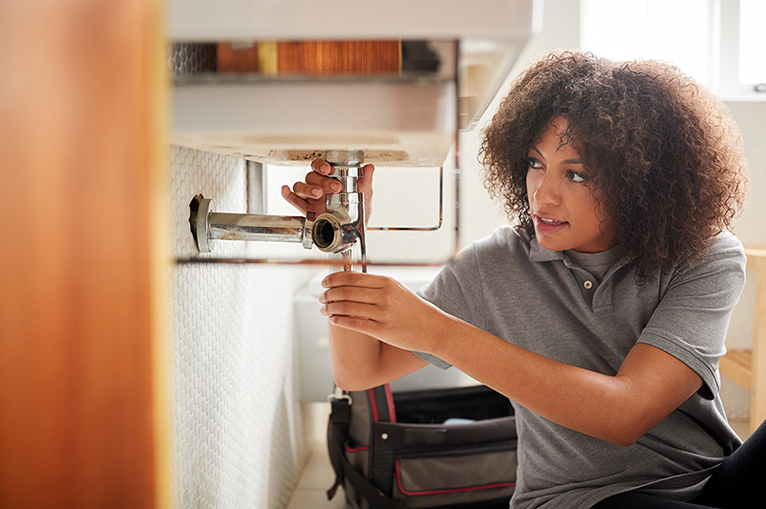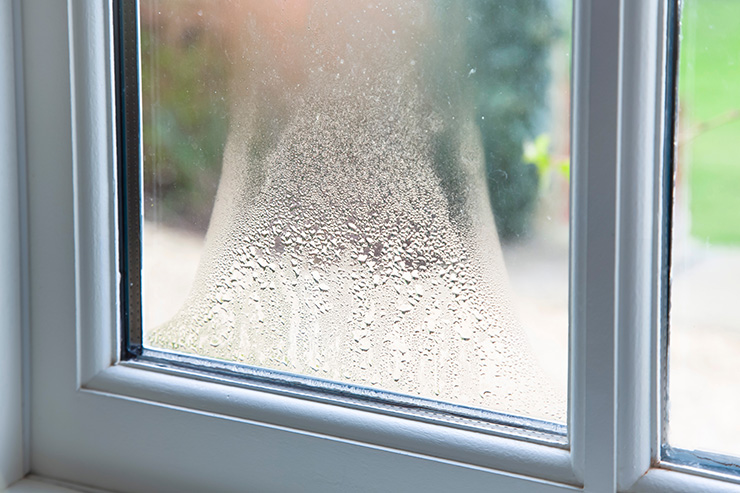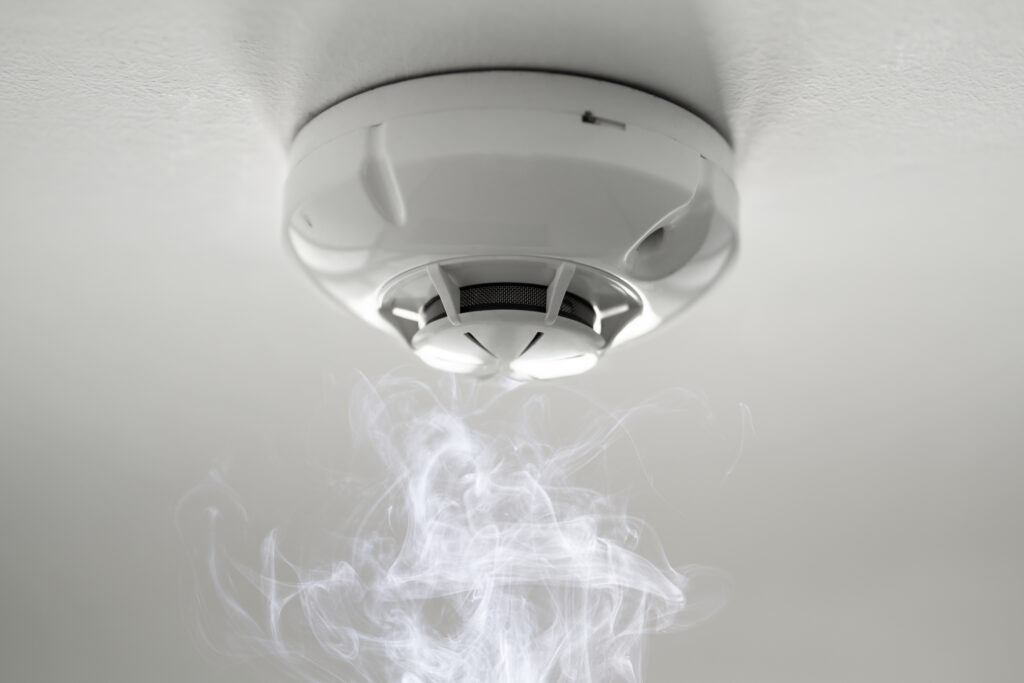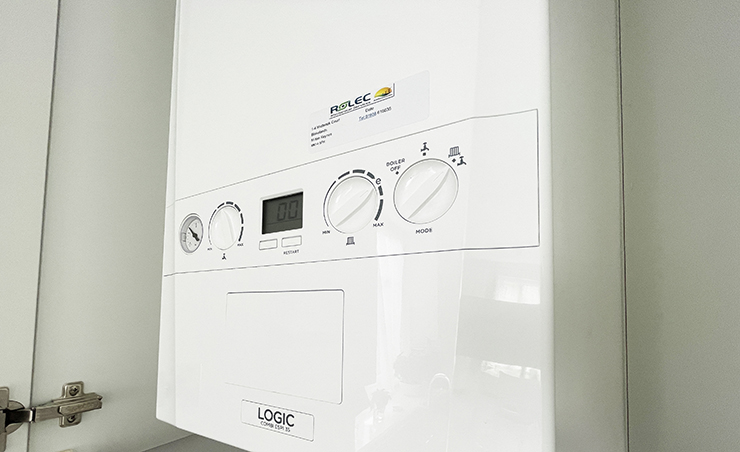Common home repairs and maintenance tasks you shouldn’t ignore
As important as home maintenance tasks are, they often get pushed to the side when life gets busy. However, what might seem like a small maintenance job can often become a more costly repair when left ignored for too long. That’s why it’s vital that you stay on top of your home’s maintenance.
We’re here to help you tick off all of your tasks, so you can go back to enjoying your home, worry-free. Simply speak to a handyperson today to get started.

What are the most common home repairs?
Unfortunately, things sometimes break or stop working as efficiently. As soon as they do, it’s a good idea to get them checked over by a professional, who can spot faults early and save you spending money on costly repairs further down the line. The home maintenance tasks that homeowners are most frequently faced with are:
- Plumbing problems, which can range from running toilets, clogged drains, leaky faucets, and broken pipes
- Roof repairs, such as missing or damaged tiles, roof leaks, or issues with guttering
- Electrical issues, including faulty wiring, switches and outlets malfunctioning, and problems with circuit breakers
- Heating and air conditioning maintenance and repair, including getting your boiler serviced
- Wall repairs, especially for peeling paint or cracks and holes
- Appliance repairs, such as for a dishwasher, dryer, oven, refrigerator, or washing machine
- Window damage that can result in air leaks, condensation, broken glass or damaged seals
- Garden landscaping maintenance, vital to ensuring your patio or deck doesn’t break, and that your trees or shrubs don’t grow out of hand or cause structural damage
- Regularly test and replace broken smoke detectors, carbon monoxide detectors and burglar alarms. Read our FAQ guides on smoke detectors, carbon monoxide detectors and burglar alarms to find out more.
These are some of the most common jobs that are likely to need maintenance work at some point in the future. If you start to notice faults or signs of wear, speak to a skilled tradesperson in your local area to ensure everything is running smoothly.

What happens if I don’t do my home maintenance checks?
There are a range of different consequences that can occur if you neglect to carry out the necessary home repairs and maintenance jobs. These include:
- Minor issues escalating into bigger problems over time, eventually costing you more in repairs. An example of this would be a small leak that, when ignored, causes water and structural damage, leading to an expensive repair job.
- Safety hazards associated with ignoring maintenance tasks like electrical wiring which can cause fires, HVAC systems which can lead to poor air quality, or a carbon monoxide leak from an old or broken detector.
- Avoiding maintenance and home repair jobs can also decrease your property’s value due to visible neglect.
- Lower energy efficiency can also be a consequence of poor home maintenance, as systems might be working harder or less efficiently, leading to higher utility bills as well. For example, your home’s insulation might be compromised by an air leak in a window.
- General neglect can also lead you to not notice new entry points that can result in pest infestations, such as insects or mice.
Your home will slowly deteriorate if you don’t regularly look after it, giving it an untidy look that will age your property beyond its years. To avoid costly repairs and health risks, speak to a skilled tradesperson in your area today to get started on those maintenance tasks you’ve been putting off!
How much should I set aside for home repairs?
Generally speaking, it’s a good idea to set aside roughly between 1% and 3% of your home’s value annually for home repairs and general maintenance. This ensures you maintain its marketplace worth. So, if your home was valued at £250,000, you should budget for roughly between £2,500 and £7,500 for annual repairs.
However, this is just a rough guide, as older properties may need more costly or frequent maintenance. Where you live in the UK will also have an impact, as cost of labour rises in London and the South East. Where possible, you should also have an emergency fund to help deal with any unforeseen or urgent repairs that might happen throughout the year.
It’s a good idea to start with any maintenance tasks that will ensure you meet safety and compliance regulations. Setting aside funds for these should be your priority. Focus on:
- Gas appliances, like your boiler and cooker (these should be checked annually by a Gas Safe registered engineer)
- Electrics, which should comply with current electrical safety standards (like the Electrical Installation Condition Report)
- Fire safety, such as regularly testing fire alarms, fire extinguishers and emergency lighting
- Health and safety during building works to ensure a safe working environment for all contractors. If your home was built before 2000, there is a risk of asbestos. During repairs and renovations, ensure you follow the right procedures to protect your health and the health of your workers.

What kind of loans are available for home repairs?
If you’re thinking of getting a loan for home repairs, there are a few options for you to choose from, depending on eligibility requirements. You could get a:
- Home Improvement Loan – these are designed specifically for home repairs and renovations
- Secured Homeowner Loan – also known as a second charge mortgage, this loan allows you to borrow against your home’s equity, allowing you to use the funds for repairs
- Personal Loans – you could also take out a personal loan and use it for home repairs (these often don’t require collateral, but they do tend to have higher interest rates)
- Re-mortgage your home – if your repairs are extensive and urgent, you might want to consider re-mortgaging your property
Whether or not you should consider a loan for home repairs depends on a few factors, including how urgent and necessary the repairs are in order to ensure the safety and structural integrity of your property.
Think about the cost of the loan (including interest rates, repayment terms, fees) and analyse these against the benefits of completing the repairs you need.
Lastly, make sure you consider alternative funding sources, such as those outlined below. If you’re not sure, we recommended you consult with a financial advisor or loan specialist first.
How can I get money for home repairs?
As well as applying for a loan, you might also want to consider checking whether or not you are eligible for any grants or schemes. For instance, you could look into:
- Green Deal Finance, which helps you make energy-saving improvements to your home
- Boiler Upgrade Scheme provides upfront grants to encourage homeowners to replace fossil fuel heating with low carbon heating systems
- If you are a disabled person, the Disabled Facilities Grant (DFG), provides financial aid for people with disabilities to help them make the needed modifications to their home
- The Energy Company Obligation (ECO), which provides funding for energy-saving measures such as insulation, boiler replacements and heating system upgrades. Check out Help to Heat for more energy home grants
- Local Authority Grants (contact your local council to find out what support they might be able to provide you with) and the Household Support Fund for vulnerable homes
- Renovation and Conservation Grants for people living in listed buildings or in registered parks, gardens or historic buildings
These are just a few of the available grants that you can apply for if you need support to cover the cost of carrying out necessary repairs. Contact your local council to find out what other support might be available to you.

What should I do if I can’t afford home repairs?
If you’re struggling to budget for your home repairs, there are a few things you can do. Firstly, prioritise the most urgent repairs, allocating funds to essential repairs first and postponing anything non-essential for the time being.
Research grants and assistance programmes led by the government and your local authority, as well as looking into charitable organisations that might be offering financial assistance for home repairs. Also look into community initiatives or resources that might be on offer to help with home repairs (community development agencies, housing associations, local organisations, religious institutions, etc).
Where possible, consider DIY or try and reach out to someone in your community that might have the right skills, and that you might be able to exchange services with.
When it comes to hiring tradespeople, make sure you request multiple quotes so that you can compare and find a cost-effective option (make sure this doesn’t compromise on quality, as this will only result in more costly repairs further down the line).
You can hire a tradesperson here:



